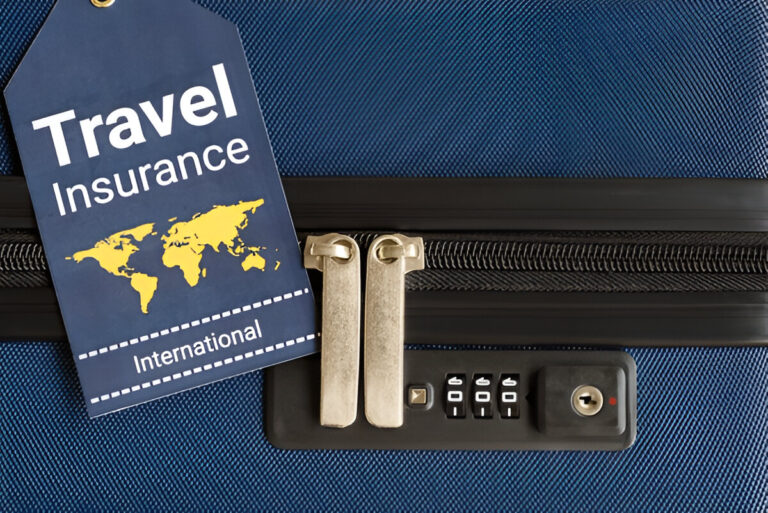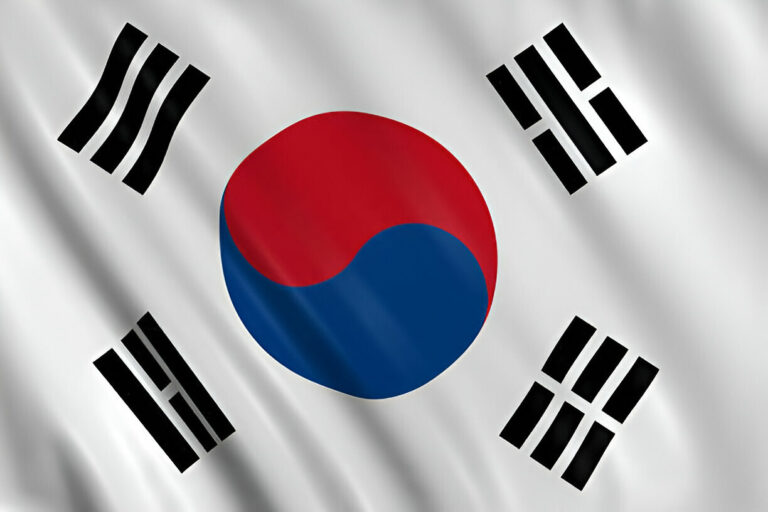South Korea Lawyer for Immigrants – Hire an Attorney in South Korea
Moving to a new country is a thrilling adventure filled with opportunities and challenges. For immigrants setting their sights on South Korea, one critical aspect that often demands attention is securing the right legal support.
Imagine navigating the complexities of immigration laws, employment disputes, or family matters without adequate legal assistance. This scenario underscores the paramount importance of understanding and obtaining comprehensive legal representation tailored for immigrants in South Korea.
Why Immigrants in South Korea Might Need a Lawyer
South Korea is known for its advanced technology, rich culture, and vibrant economy, attracts immigrants from around the globe. Whether you’re moving for work, study, or to join family, understanding the legal landscape is crucial. Here are some common reasons why immigrants may require legal assistance:
1. Immigration and Visa Issues
Securing the appropriate visa or residence permit is often the first step for immigrants. The Korean Immigration Service oversees these processes, which can be complex and time-consuming. An immigration lawyer can help you navigate the application process, ensure all documentation is correctly submitted, and represent you in case of appeals or rejections. They can also assist with extensions, changes in visa status, and pathways to permanent residency or citizenship.
2. Employment Disputes
Employment laws in South Korea are designed to protect workers’ rights. However, misunderstandings or disputes can arise regarding contracts, working conditions, wages, and termination. An employment lawyer can provide guidance, mediate disputes, and represent you in legal proceedings to ensure your rights are upheld. They can also assist with issues related to discrimination, harassment, and wrongful termination.
3. Family Law
Family matters such as marriage, divorce, child custody, and adoption involve intricate legal procedures. A family lawyer can assist in drafting agreements, mediating negotiations, and ensuring that all legal requirements are met to protect the interests of all parties involved, especially children. They can also help with issues related to international marriages and cross-border family matters.
4. Criminal Defense
If you find yourself facing criminal charges in South Korea, having a competent criminal defense lawyer is essential. They can help you understand the charges, build a defense strategy, and represent you in court to ensure a fair trial. Criminal defense lawyers can assist with everything from minor offenses to serious crimes, ensuring that your rights are protected throughout the legal process.
5. Property and Housing Disputes
Whether you’re renting an apartment or purchasing property, disputes can arise related to contracts, tenant rights, and property ownership. A property lawyer can assist in resolving these issues, ensuring that your interests are protected in any transaction or dispute. They can also help with landlord-tenant disputes, property transfers, and zoning issues.
6. Business and Startup Legalities
For immigrants looking to start a business in South Korea, understanding the legal requirements is crucial. A business lawyer can guide you through company registration, compliance with local laws, contract drafting, and intellectual property protection, ensuring your business operates smoothly and legally. They can also assist with mergers, acquisitions, and other complex business transactions.
Types of Lawyers Available for Immigrants in South Korea
South Korea offers a variety of legal professionals who specialize in different areas of law. Understanding the types of lawyers available can help you choose the right one for your specific needs:
1. Immigration Lawyers
Specializing in visa applications, residency permits, and citizenship processes, immigration lawyers are well-versed in the regulations set by the Korean Immigration Service. They assist with documentation, represent clients in appeals, and provide strategic advice to increase the likelihood of successful immigration outcomes.
2. Employment Lawyers
Employment lawyers focus on workplace-related issues, including contract negotiations, workplace harassment, discrimination cases, and wrongful termination. They ensure that employers comply with Korean labor laws and protect employees’ rights.
3. Family Lawyers
Family lawyers handle matters such as marriage contracts, divorce proceedings, child custody disputes, and adoption cases. They work to achieve amicable resolutions that best serve the interests of families and children involved.
4. Criminal Defense Lawyers
These lawyers represent individuals accused of crimes, ensuring their clients receive a fair trial. They investigate cases, challenge evidence, negotiate plea deals, and advocate for their clients in court.
5. Property Lawyers
Property lawyers deal with real estate transactions, landlord-tenant disputes, property ownership issues, and zoning laws. They provide legal assistance in buying, selling, and managing property in South Korea.
6. Business Lawyers
Business lawyers assist entrepreneurs and businesses with company formation, compliance with business regulations, contract drafting, mergers and acquisitions, and intellectual property protection. They ensure that businesses operate within the legal framework of South Korea.
How to Find a Qualified Lawyer in South Korea
Finding the right lawyer is essential for addressing your legal needs effectively. Here are some strategies to help you locate a qualified attorney in South Korea:
1. Research Online
Start by searching for law firms and individual lawyers specializing in the area of law you require. Websites like the Korean Bar Association (Korean Bar Association) offer directories of licensed attorneys. Additionally, legal directories such as FindLaw Korea and Lawyers Korea provide listings and reviews of lawyers across various specializations.
2. Referrals and Recommendations
Ask friends, family members, or colleagues who have experience with the South Korean legal system for recommendations. Community groups, especially those catering to immigrants, can also provide valuable insights and referrals to trusted lawyers.
3. Legal Aid Organizations
Organizations like the Korean Legal Aid Corporation and Community Legal Centers offer legal assistance and can refer you to lawyers who specialize in immigrant-related legal issues.
4. Consult the Korean Bar Association
The Korean Bar Association maintains a comprehensive directory of licensed lawyers. You can use their search feature to find attorneys based on location and specialization. This ensures that the lawyer you choose is officially recognized and qualified to practice in South Korea.
5. Attend Legal Clinics and Workshops
Legal clinics and workshops organized by universities, community centers, or legal aid organizations provide opportunities to meet lawyers and seek preliminary advice. These events can help you understand your legal needs and connect with professionals who can assist you further.
Factors to Consider When Hiring a Lawyer
Choosing the right lawyer involves evaluating several key factors to ensure they meet your specific needs:
1. Specialization and Expertise
Ensure the lawyer specializes in the area of law relevant to your case. Specialized knowledge increases the likelihood of a favorable outcome, as the lawyer will be familiar with the latest laws, regulations, and best practices in that field.
2. Experience with Immigrant Cases
A lawyer experienced in handling immigrant cases will understand the unique challenges and nuances involved. They can provide tailored advice and strategies that align with your specific circumstances as an immigrant in South Korea.
3. Language Proficiency
Effective communication is crucial in legal matters. Hiring a lawyer who speaks your native language or is fluent in a language you are comfortable with can facilitate better understanding and smoother interactions.
4. Reputation and Reviews
Research the lawyer’s reputation by reading client reviews, testimonials, and case studies. A lawyer with positive feedback and a proven track record is more likely to provide reliable and effective legal services.
5. Fees and Payment Structure
Understand the lawyer’s fee structure before hiring them. Common fee arrangements include hourly rates, flat fees for specific services, or retainer agreements. Ensure that their fees are transparent and align with your budget.
6. Accessibility and Communication
Choose a lawyer who is accessible and responsive to your inquiries. Prompt communication ensures that you are kept informed about the progress of your case and can address any concerns promptly.
The Process of Hiring a Lawyer in South Korea
Hiring a lawyer involves several steps to ensure that you select the right professional for your legal needs:
1. Initial Consultation
Schedule an initial consultation to discuss your case and assess the lawyer’s suitability. During this meeting, you can explain your situation, ask questions, and gauge the lawyer’s understanding and approach.
2. Discussing Your Case and Needs
Provide the lawyer with all relevant information and documentation related to your case. This helps the lawyer understand the complexities involved and develop a tailored strategy to address your legal issues.
3. Understanding Fees and Contracts
Review the lawyer’s fee structure and ensure you understand the costs involved. Discuss payment terms, billing methods, and any additional expenses that may arise during the course of your case.
4. Official Hiring and Representation
Once you are satisfied with the lawyer’s expertise and terms, you can officially hire them by signing a retainer agreement or service contract. This agreement outlines the scope of work, fees, and other essential details of your legal representation.
Cost of Hiring a Lawyer in South Korea
Legal services can be expensive, but understanding the cost factors and available options can help you manage your budget effectively:
1. Typical Fee Structures
- Hourly Rates: Lawyers charge by the hour for their services. Rates can vary based on the lawyer’s experience, specialization, and location.
- Flat Fees: For specific services like drafting a contract or filing a visa application, lawyers may offer flat fees, providing cost certainty.
- Retainer Agreements: In ongoing legal matters, lawyers may require a retainer fee—a lump sum paid upfront to cover future services.
2. Legal Aid Options
South Korea offers legal aid for individuals who cannot afford legal representation. Eligibility is based on income, assets, and the nature of the legal issue. Legal aid can cover part or all of your legal fees, ensuring access to justice regardless of financial status.
3. Budgeting for Legal Expenses
Plan your budget by estimating potential legal costs and exploring different fee structures. Discuss payment plans or installment options with your lawyer if upfront costs are prohibitive.
Common Legal Challenges Faced by Immigrants in South Korea
Immigrants in South Korea often encounter specific legal challenges that require professional assistance:
1. Navigating the Immigration Process
Understanding the requirements for visas, residence permits, and citizenship can be overwhelming. Legal professionals can simplify the process, ensuring all criteria are met and applications are correctly submitted.
2. Language Barriers in Legal Settings
Legal proceedings in South Korea are conducted in Korean. Language barriers can hinder effective communication and understanding of legal proceedings. Hiring a multilingual lawyer or utilizing translation services can bridge this gap.
3. Employment Rights and Discrimination
Immigrants may face discrimination in the workplace or misunderstand their employment rights. Employment lawyers can help address unfair treatment, negotiate contracts, and ensure compliance with labor laws.
4. Family Reunification Issues
Reuniting with family members can involve complex legal procedures. Family lawyers can assist with the necessary documentation, applications, and negotiations to facilitate family reunification.
5. Legal Documentation and Compliance
Maintaining accurate legal documentation is crucial for residency, employment, and other legal matters. Lawyers can help ensure that all necessary documents are correctly prepared, submitted, and compliant with South Korean laws.
Tips for Working Effectively with Your Lawyer
Maximizing the benefits of legal representation involves effective collaboration with your lawyer. Here are some tips to ensure a productive partnership:
1. Clear Communication
Maintain open and honest communication with your lawyer. Clearly express your concerns, goals, and expectations to ensure that your lawyer understands your needs and can advocate effectively on your behalf.
2. Providing Complete and Accurate Information
Share all relevant information and documentation related to your case. Incomplete or inaccurate information can hinder your lawyer’s ability to build a strong case and achieve favorable outcomes.
3. Setting Realistic Expectations
Understand that legal processes can be time-consuming and outcomes are not always guaranteed. Setting realistic expectations helps manage stress and fosters a more collaborative relationship with your lawyer.
4. Staying Organized
Keep all legal documents, correspondence, and notes organized. An organized approach ensures that you can provide necessary information promptly and stay informed about the progress of your case.
5. Understanding Legal Terms and Processes
Familiarize yourself with basic legal terms and processes related to your case. This knowledge enhances your ability to engage in meaningful discussions with your lawyer and make informed decisions.
Conclusion
Hiring a qualified lawyer can make a significant difference in navigating the complexities of the South Korean legal system, protecting your rights, and ensuring a smooth transition. Whether you’re dealing with immigration issues, employment disputes, or family law matters, having professional legal support is invaluable.
Take the time to research, consult with multiple lawyers, and choose a legal representative who understands your unique needs as an immigrant. With the right attorney by your side, you can confidently build your future in South Korea, knowing that your legal matters are in capable hands.





